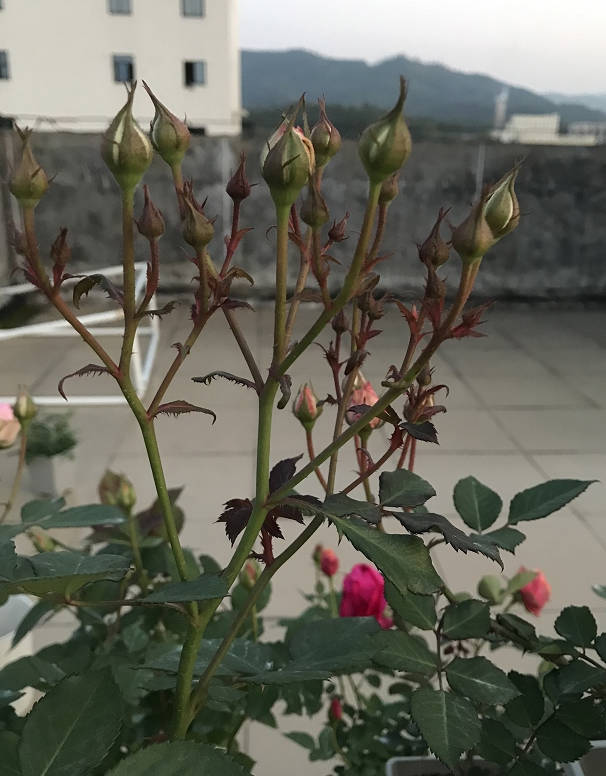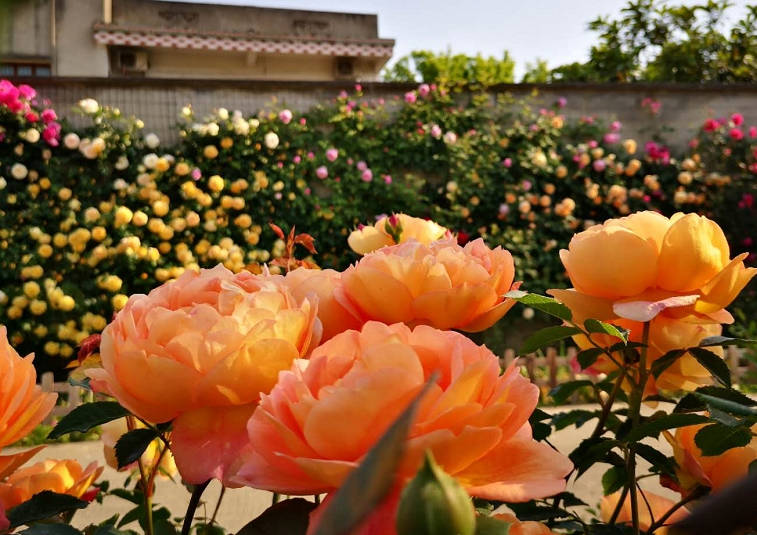How to Care for Ground Roses in Heavy Rain (3 Essential Tips)
Yesterday we shared the fertilization and management of potted roses in rainy season, and many florists left their comments to ask how to take care of in-ground roses. Today, we will explain in detail the key things that ground-planted roses need to pay attention to in consecutive rainy days.

Three key points for in-ground rose management in rainy season
Compared to potted roses, in-ground roses are usually easier to manage. However, you still need to pay attention to the following three issues during continuous rainfall to ensure healthy growth of roses.
1. Avoid waterlogging
When planting roses, many florists used to dig a deep hole, plant the rose seedlings and cover the soil. However, after continuous rainfall, the soil will settle, causing the planting location to be lower than the surrounding ground and creating an area of standing water.
Solution:
- When planting: We recommend shallow planting and mounding the soil to avoid water accumulation after settling.
- When already planted: if continuous rainfall occurs, dig drainage trenches around the rose to prevent water from accumulating in the root system. Waterlogging will cause the root system to suffocate, and the rose may wilt quickly when the sky clears.
2. Seize the opportunity to spray
With high temperature and high humidity during the rainy season, roses are susceptible to black spot disease, powdery mildew or insect pests. However, it is difficult to spray in rainy days, what should be done?
Response strategy:
Seize the short period of no rain: If the weather forecast shows that there will be no rain for 4-5 hours, you can spray fungicides and insecticides immediately.
Rain within 2 hours after spraying: the drugs can still work.
Spraying when the leaves are wet: the concentration of the drug can be increased appropriately, but it is necessary to avoid drug damage.
Use endosorption-type agents: such as carbendazim, imidacloprid, small powder medicine, etc., directly sprinkled in the soil around the roots, the rose can be absorbed to prevent diseases and insects for a long time.
3. Supplement fertilizers at the right time
Long-term rainfall will wash away the nutrients in the soil, resulting in a lack of fertilizer. At this time, the following methods can be taken to supplement nutrients:
Fertilizer suggestions:
- Use water-soluble fertilizer: Sprinkle it directly around the root system of roses, the rain will help the fertilizer penetrate the soil.
- Avoid direct contact with the main roots and leaves: prevent fertilizer damage.





